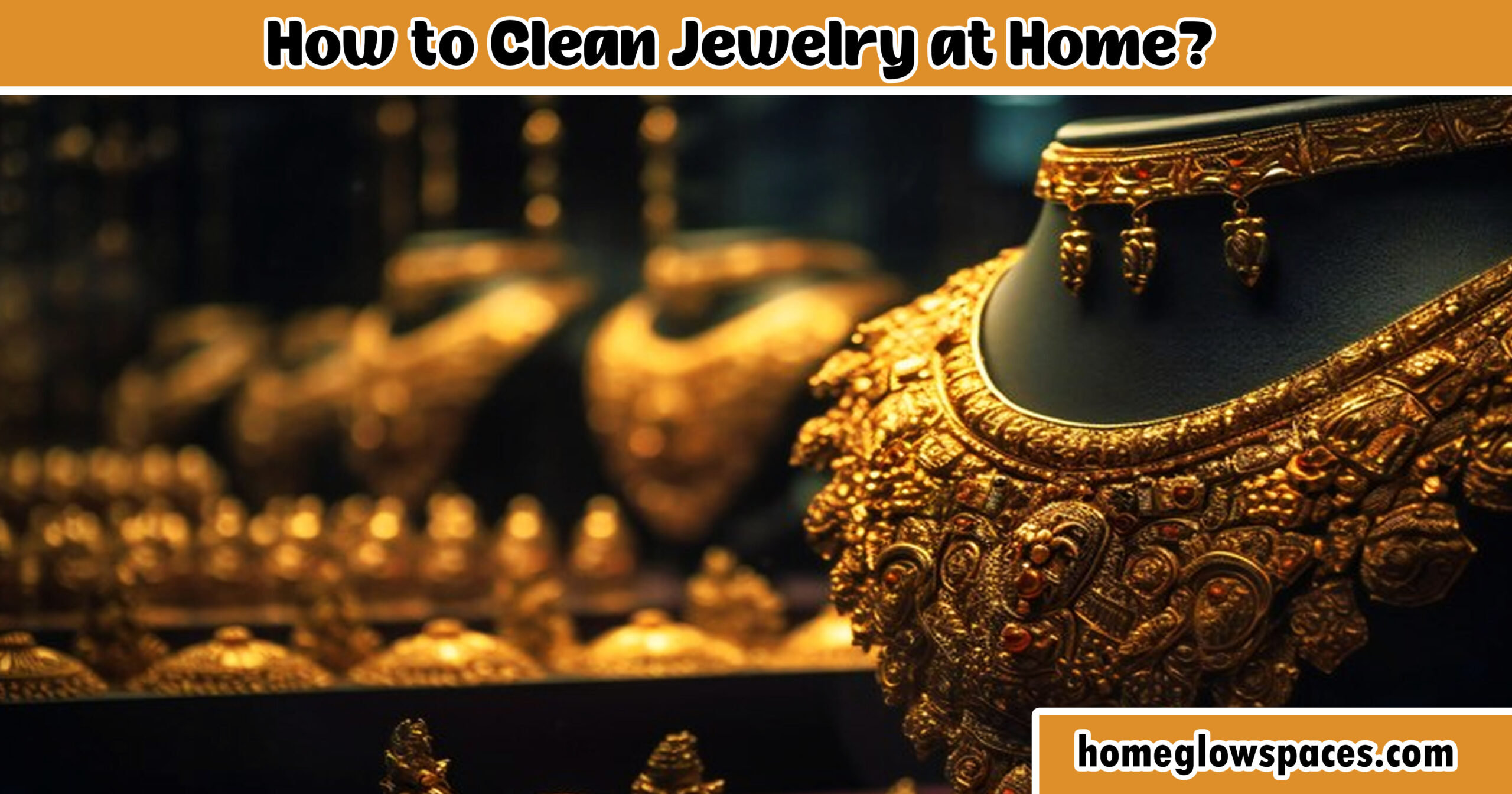Jewelry adds a sparkle to any outfit, but it doesn’t stay shining forever. Over time, even the most dazzling pieces can lose their luster. Thankfully, you don’t need to take every piece to a jeweler for professional cleaning. With a few household items and the right techniques, you can clean your jewelry at home safely and effectively. Here’s a full guide to help keep your collection bright and beautiful.
The Basics of Jewelry Cleaning
Understanding Jewelry Materials
Before you dive into cleaning, it’s important to know what material your jewelry is made of. Gold, silver, diamonds, and gemstones each have unique cleaning needs. Using the wrong solution can cause scratches or discoloration, so always check your jewelry type before cleaning.
Types of Jewelry That Need Special Care
Some types of jewelry, like pearls or opals, are very delicate and can’t handle harsh cleaning solutions. Always check if your jewelry requires special care before starting the cleaning process.
Cleaning Solutions to Use
DIY Cleaning Solutions with Household Items
For most jewelry, gentle, homemade solutions work wonders. Warm water and mild dish soap can be effective on gold, silver, and diamonds. Simply mix a few drops of dish soap in warm water, soak the jewelry, and gently brush it with a soft toothbrush.
When to Use Professional Cleaners
If a piece has very delicate stones or materials, or if it’s heavily tarnished, you may need a professional-grade cleaner. But be cautious—using a cleaner without knowing your jewelry’s materials can cause damage.
How to Clean Different Types of Jewelry
Gold Jewelry Cleaning Tips
Gold jewelry is durable and usually cleans up well with just a few minutes of soaking in soapy water. Rinse and pat it dry to avoid water spots.
Cleaning Silver Jewelry
Silver jewelry tends to tarnish easily. For tarnished silver, try a paste made from baking soda and water. Gently rub it on the jewelry, rinse, and polish with a soft cloth.
Best Way to Clean Diamonds
Diamonds are hard, but they still need gentle cleaning. Soak diamond pieces in warm soapy water and scrub them lightly with a soft brush to remove oils and dirt.
How to Clean Gemstone Jewelry
Each gemstone has its own cleaning requirements. For example, rubies and sapphires can handle gentle scrubbing, but stones like opals and emeralds need only a damp cloth and should never be soaked.
Precautions to Take
Avoiding Damage to Jewelry
Never use bleach or harsh chemicals on your jewelry. These can permanently damage metals and stones. Also, avoid hot water, as it can weaken the glue holding gems in place.
Cleaning Techniques to Avoid
Some common cleaning tips online can harm jewelry. For instance, toothpaste is too abrasive and can scratch softer metals and gemstones.
Detailed Cleaning Process for Various Jewelry Pieces
Earrings
Earrings can collect dirt and bacteria. Soak them in soapy water, gently scrub with a brush, and disinfect the post with rubbing alcohol.
Necklaces
Necklaces, especially those with pendants, need special attention to avoid damaging the chain. Gently scrub the chain with a soft brush and avoid pulling on it too hard.
Rings
Rings collect oils and dirt quickly, especially if you wear them daily. Soak them in soapy water and use a toothbrush to clean around the stone and band.
Bracelets
Bracelets can be intricate, with links and clasps that trap dirt. Use a soft brush to gently scrub each link, and pat dry thoroughly.
Polishing and Buffing Jewelry at Home
After cleaning, polish your jewelry with a soft microfiber cloth to make it shine. Avoid using a polishing cloth on pieces with delicate stones, as it can cause scratches.
Storing Cleaned Jewelry Properly
Once your jewelry is clean, store it properly to keep it from tarnishing or getting damaged. Place pieces in individual pouches or soft-lined compartments to prevent scratches and tangling.
How Often Should You Clean Your Jewelry?
For jewelry you wear daily, a quick monthly cleaning is usually enough. For special pieces that aren’t worn as often, a gentle cleaning every few months will help maintain their sparkle.
Common Mistakes to Avoid When Cleaning Jewelry
Avoid using abrasive materials, soaking delicate stones for too long, and cleaning with harsh chemicals. It’s also wise to steer clear of leaving jewelry in water for extended periods, as this can weaken the structure of certain pieces.
Using Ultrasonic Cleaners at Home
Ultrasonic cleaners are popular for home use, but they aren’t safe for all jewelry types. Avoid using these on delicate or porous gemstones like opals or pearls, as the vibrations can cause cracks.
Eco-Friendly Jewelry Cleaning Options
To clean jewelry in an eco-friendly way, use baking soda, vinegar, or lemon juice (depending on the material). These ingredients are effective, biodegradable, and safe for many types of jewelry when used correctly.
Signs Your Jewelry Needs Professional Cleaning
If your jewelry still looks dull after cleaning, has visible damage, or contains intricate designs that you can’t reach, it may need professional cleaning. Jewelers have special tools that can give your pieces a fresh look without risking damage.
FAQs
Can I use vinegar on my jewelry?
Yes, but only for certain types, like silver. Avoid using vinegar on gold or gemstones, as it can be too harsh.
How do I clean tarnished silver jewelry?
Make a paste with baking soda and water, gently rub it on the tarnished areas, rinse, and dry with a soft cloth.
What’s the best way to clean pearls?
Pearls are very delicate and should only be cleaned with a soft, damp cloth. Avoid soaking or scrubbing them.
Can I clean jewelry with toothpaste?
No, toothpaste is too abrasive and can scratch metals and stones.
Is using baking soda to clean jewelry safe?
Baking soda is generally safe for silver, but it can be too abrasive for softer metals and some stones.



